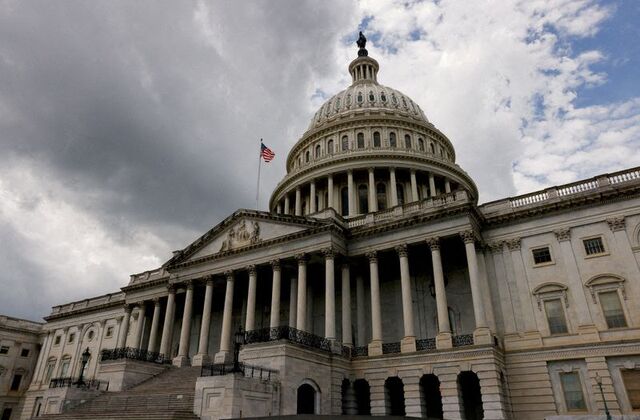The House achieved a significant milestone on Wednesday evening by approving a substantial $78 billion bipartisan tax package. This development marks a crucial step toward the temporary expansion of the child tax credit and the reinstatement of various business tax benefits.
The bill is now set to move to the Senate for further consideration. Despite House Speaker Mike Johnson overseeing a narrow majority, the legislation garnered rare bipartisan support, securing a vote of 357 to 70. Notably, 188 Democrats and 169 Republicans voted in favor, while 23 Democrats and 47 Republicans opposed the bill.
The proposed deal aims to provide substantial benefits in its initial year, particularly to low-income families with approximately 16 million children. According to the Center on Budget and Policy Priorities, more than 80% of those not currently receiving the full credit due to their families’ low earnings would benefit. Projections suggest that the package could lift over half a million children out of poverty and improve the financial situations of around 5 million more children who would remain below the poverty line by 2025.
Despite its positive impact, the bill faced resistance from moderates, especially those from New York, due to the absence of a provision raising the cap on the federal deduction for state and local taxes. Four New York House Republicans expressed their displeasure by nearly derailing an unrelated procedural vote on Tuesday, relenting only after discussions with party leadership.
The overall impact on the federal budget is expected to be modest, with projections indicating a reduction in revenues by less than $400 million over a 10-year period.
Enhancements to the Child Tax Credit
The primary focus of the tax package is the temporary expansion of the child tax credit, benefiting lower-income families significantly. The deal involves increasing the maximum refundable credit for households with little or no income taxes owed.
The proposal ensures that low-income families with more than one child receive the same credit for each child, mirroring the existing structure for higher-income households. Families are granted the flexibility to use their earnings from either the current year or the prior year, accommodating potential fluctuations in income.
Beginning in 2024, the credit is set to be adjusted for inflation, with expectations of raising the maximum credit to $2,100 per child in 2025, up from the current $2,000. These provisions are slated to remain in effect for three tax years, spanning from 2023 through 2025.
While the proposal has gained bipartisan support, some Republicans have expressed concerns about potential disincentives to work and the risk of undocumented immigrants claiming the credit. House Ways and Means Chairman Jason Smith has emphasized that the deal maintains a minimum earnings threshold of $2,500 required to qualify for the credit. Additionally, the requirement for children to have Social Security numbers remains intact, ensuring families must meet stringent criteria to file for the credit.
Tax Relief for Businesses
In addition to the child tax credit enhancements, the tax package offers temporary relief to businesses by restoring several business tax benefits that recently ended or have entered a phase-out stage. Originally part of the Republicans’ 2017 Tax Cuts and Jobs Act, these benefits include allowing businesses to immediately deduct the cost of US-based research and experimentation investments over five years. The deal also reinstates the ability to immediately deduct 100% of the investment in machinery and equipment. Tightened limits on the deductibility of interest expenses, primarily affecting heavily indebted companies, would be relaxed. These provisions are set to run through 2025.
Addressing Disaster Relief and Housing Credits
The tax package demonstrates a comprehensive approach by extending relief to individuals and businesses affected by disasters, including hurricanes, flooding, wildfires, and the Ohio train derailment in East Palestine last year. Additionally, it seeks to enhance the Low-Income Housing Tax Credit to increase the supply of affordable housing.
Accelerating the Deadline for Employee Retention Tax Credit Claims
As part of its provisions, the package accelerates the deadline for filing backdated claims for the Employee Retention Tax Credit, a Covid-19-era program that has faced widespread fraud. The deadline would be moved up to January 31, 2024, from the originally scheduled April 15, 2025. This adjustment is estimated to save taxpayers more than $78 billion, effectively offsetting a significant portion of the package’s overall cost, according to the Joint Committee on Taxation.
In conclusion, the passage of this bipartisan tax package signals a critical move toward addressing key issues such as child poverty, disaster relief, and business tax benefits. The proposed measures, including enhancements to the child tax credit and temporary relief for businesses, demonstrate a commitment to fostering economic stability and supporting vulnerable populations. As the legislation advances to the Senate, its potential impact on various sectors of the economy will be closely monitored.















































